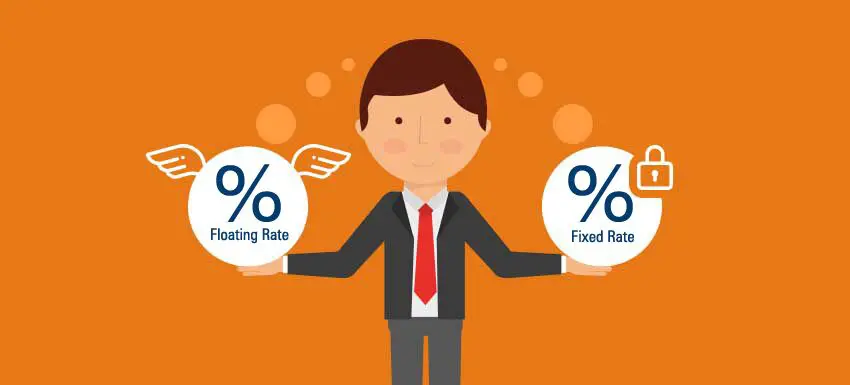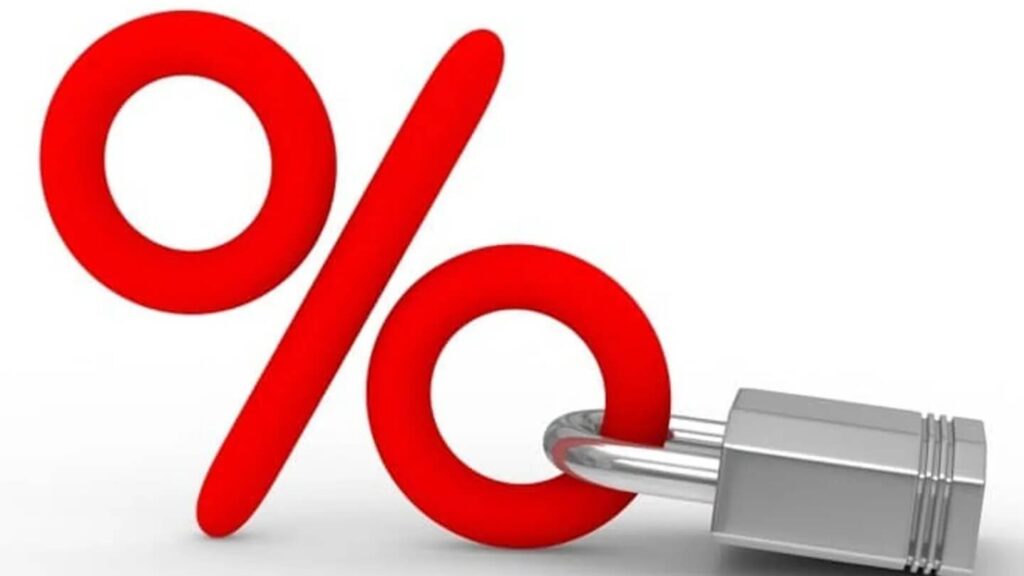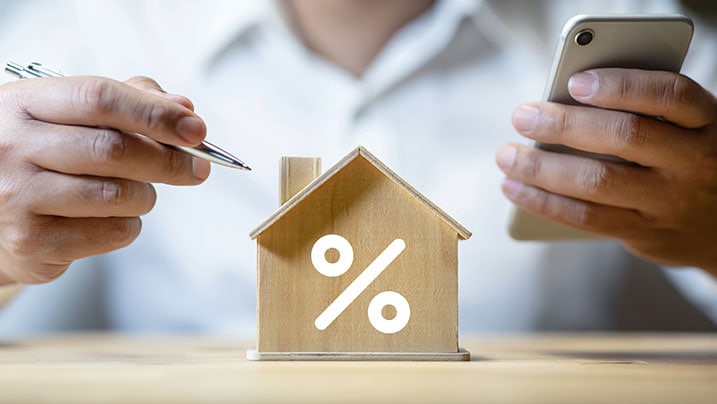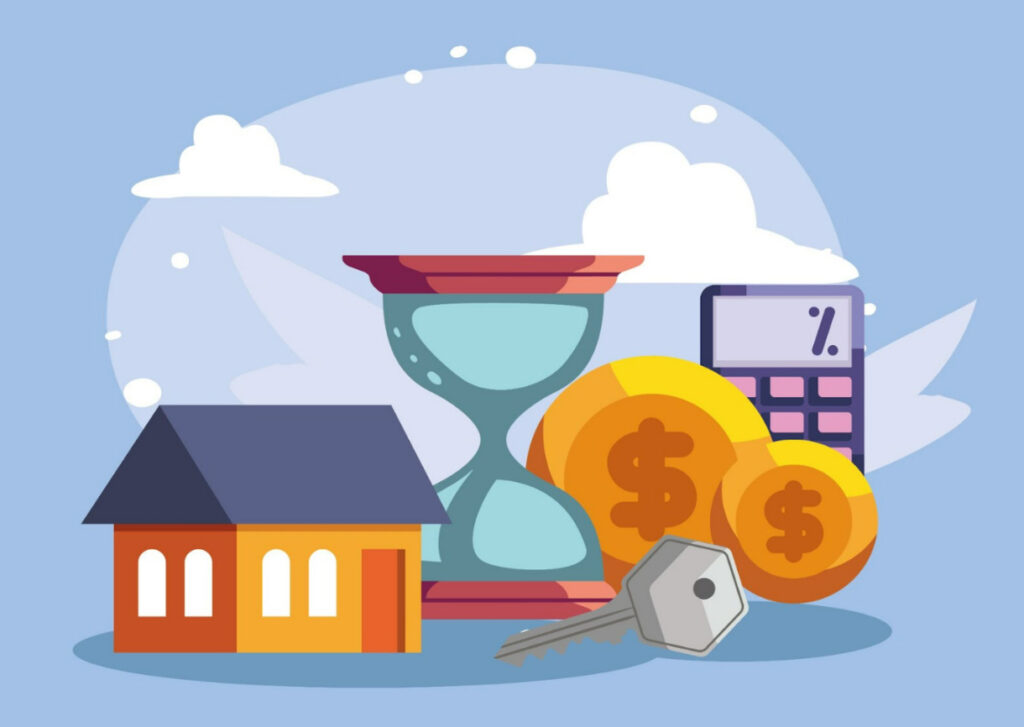
When you get a home loan, it is very important to decide if you want a fixed or floating interest rate. Both have positive and negative sides, so knowing about them helps you choose what fits best with your plans and situation. Let’s take a look in detail:
Fixed Interest Rates
Characteristics of fixed interest rates

Fixed interest rates keep the same rate for the whole period of the loan, which gives stability and makes it possible for borrowers to know what to expect. Because monthly EMIs are fixed, too, it helps borrowers organize their budgets without concern about changing payment amounts.
This steadiness gives comfort, even when the economy is unpredictable because it makes financial duties clear. When you take away the unpredictability that comes with changing rates, people who borrow money can make plans for what lies ahead without worrying about their repayments going up suddenly.
Generally, having a fixed interest rate provides stability and comfort to the people who take loans, encouraging them to plan their finances well and make wise choices.
Advantages of fixed interest rates
Fixed interest rates offer a multitude of advantages, notably simplifying budgeting and financial management. Borrowers can accurately anticipate their monthly payments, facilitating meticulous budget planning. Moreover, fixed rates shield borrowers from market fluctuations, providing stability and insulating them from sudden spikes in ROIs, thus ensuring a steady financial environment.
This steadiness gives borrowers calmness so they can pay attention to other important financial matters without stress. Generally, many people looking for financial steadiness choose fixed interest rates because they are predictable and safe.
Disadvantages of fixed interest rates
Fixed interest rates have some disadvantages, like starting with higher rates than variable ones, which may lead to more expensive borrowing costs at first. Also, if the market interest rates go down, borrowers might not benefit because fixed rates do not change.
Fixed-rate loans usually don’t give much freedom to pay off early or refinance, making it hard for borrowers to change their loan conditions when their financial situation changes. This can make fixed-rate loans not so attractive for those who want lower starting costs and more flexibility.
Floating Interest Rates
Characteristics of floating interest rates

Interest rates that float change with the market, so the monthly payments also go up or down because of this. This unpredictability can make the repayment amounts not certain, but it also gives a chance to save money if the market rates go down. On the other side, if interest rates go up, borrowers might have to pay more.
Generally, the changing character of floating interest rates brings risks and chances, fitting for those who borrow money and are ready to handle market changes.
Advantages of floating interest rates
Such rates can be good because they often start lower than fixed interest rates, which means the borrowing cost at first is less. Also, if the general interest rates go down in the market, people who borrowed money could pay less every month.
Moreover, loans with floating interest rates usually provide more adaptability, letting the borrowers change their lenders or refinance to get improved conditions when the market shifts. This flexibility gives the borrowers the power to benefit from good situations and adjust their loan agreements so they fit better with what they need.
Disadvantages of floating interest rates
Floating interest rates present challenges, encompassing the uncertainty and potential for rising interest rates, which may result in elevated monthly payments and amplified borrowing expenses. Moreover, the frequent fluctuations inherent in floating rates hinder borrowers’ ability to devise accurate budgets and financial plans, given the unpredictability of their monthly obligations.
Furthermore, borrowers may experience heightened stress as they must continuously monitor market trends to anticipate potential rate changes and their subsequent impact on loan repayments, thereby complicating financial management.
Factors to Consider When Choosing Between Fixed and Floating Interest Rates
Personal Risk Tolerance and Financial Stability

People need to consider how much risk and stability they are comfortable with. Having a fixed rate is predictable and good for those who like regular payments. Conversely, floating rates may appeal to risk-tolerant individuals capable of managing fluctuating payments.
Current Economic Conditions and Interest Rate Trends
Grasping trends in the market is very important. Stable interest rates protect from possible increases, and floating rates can lead to savings if the rates go down. Analyzing economic indicators helps anticipate market movements.
Consider a ₹20,00,000 home loan with a fixed interest rate of 8% over 20 years, resulting in a monthly payment of approximately ₹16,442. If opting for a floating rate starting at 7.5%, the initial payment might be around ₹15,634. However, if rates increase by 1%, the payment could rise to about ₹17,162, emphasizing the potential for fluctuation in floating rates. It is also advisable to compare the different home loan offers from the top banks to figure out the right deal for you.
Loan Tenure and Long-Term Financial Goals

Think about how long you will have the loan for and what your goals are. If you plan to keep it for many years, a stable interest rate is good because it does not change. Floating rates may align better with short-term goals due to potential savings.
Flexibility and Prepayment Options
Assess how flexible the different types of interest rates are. Usually, fixed rates restrict how much you can prepay, but variable rates might give more room to change conditions. Assessing these options ensures alignment with financial strategies.
Conclusion
Are you having a hard time deciding whether to go for fixed or floating interest rates on your home loan? CreditDharma can help you decide the best option for you by analyzing your financial aims and situation. In the case of floating interest rates, they will give you comprehensive guidance on balance transfer, too. Get closer to your dream home with Creditdharma by your side.




